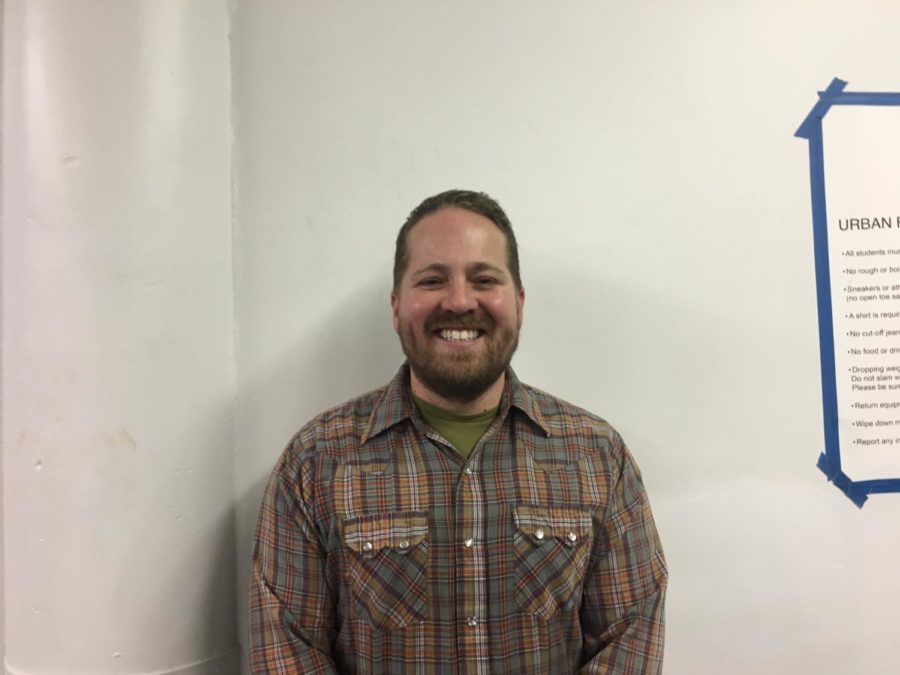The changing face of Urban athletics: Urban’s new athletic trainer
Urban Athletic Trainer Josh Pendleton, by Phoebe Grandi, Visuals Editor.
According to At Your Own Risk, a website created by the National Athletic Trainers Association, 90 percent of student-athletes have experienced a sports-related injury and 54 percent of students have said that they continued to play their sport while injured. The website claims that in order to make sports safer, schools need “an athletic trainer. An ally. A friend. An expert in sports medicine.”
This year, the Urban School took that recommendation to heart and hired Josh Pendleton, a sports trainer available to help Urban’s injured student-athletes. Pendleton, who became interested in athletic training while in college, explained that he had always been “very interested in medicine and how the body works.” It was not until he sbegan talking to the athletic trainer at his college and “she directed [him] to athletic training education programs” that he decided to pursue athletic training.
Pendleton now works at both Urban and at the UCSF orthopedic institute in Mission Bay as a trainer. His time is split evenly between the two locations, and he is available to help Urban athletes from 2 pm to the end of the last sports game or practice, daily. Pendleton also wrote that “if Urban athletes have more serious injuries, we see them in the clinic [at UCSF], where I can ask the doctors specific questions about their injuries.”
Explaining his reasoning for hiring a trainer, Joe Skiffer said, “although I have been athletic and have been in training rooms most of my life, I am not well-versed in athletic training, so my department along with Charlotte felt it was important that we hired somebody who could fill that void.”
“We have a fair amount of injuries, so [Pendleton] sees quite a lot of people and he has put them on track to get back to their sports. This helps the coaches because it takes the responsibility of rehab off their plate so they can focus on their team,” Skiffer said.
Having an athletic trainer also makes Urban’s athletic program more reputable. “It is big for the families of prospective students…because it validates our program and it shows that we care about our sports as much as the other programs we offer. It builds a lot more respect around our athletics,” said Skiffer. He added that having a trainer is also “a huge sign that there is support from the administration to build our program.”
In addition, many students have expressed their gratitude for Pendleton and the help he offered them when they became injured. Emily Huang ‘21 described her experiences working with Pendleton after spraining her ankle during varsity Volleyball practice. “Every single day of volleyball season this year, Josh taped my ankle and had me do physical therapy exercises, which made it possible for me to heal faster than I would have otherwise. Josh is really reliable, very caring, and always checked in with me and kept notes on how I was doing,” Huang said.
“When you are at a new school, what is important is exposure and letting kids and parents know that you are here and available. If people have any questions, no matter how big or how small, I’m always interested in helping them. Whether that is for an in-season sport or a hobby they do off campus, I’m always here to help,” said Pendleton.


